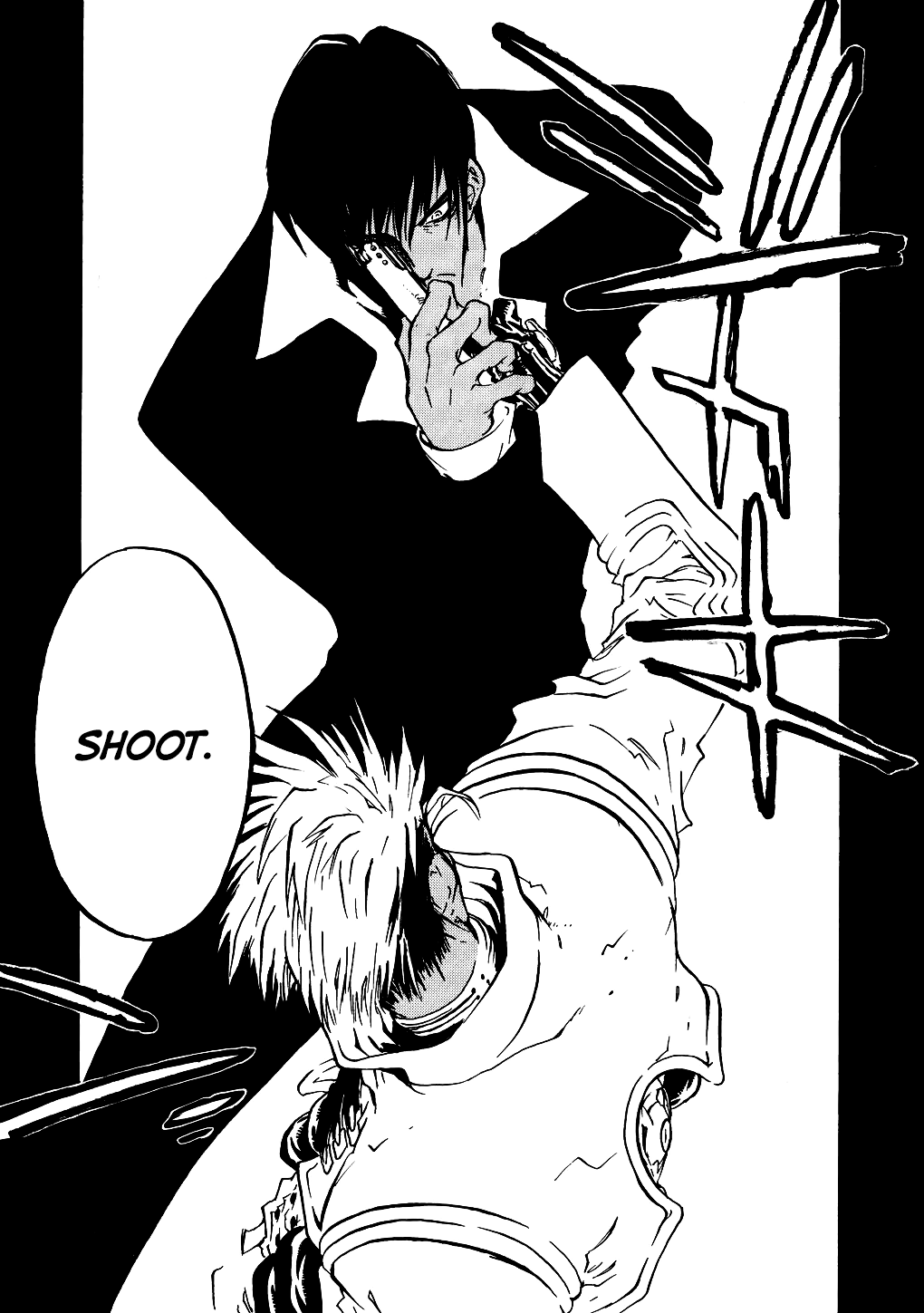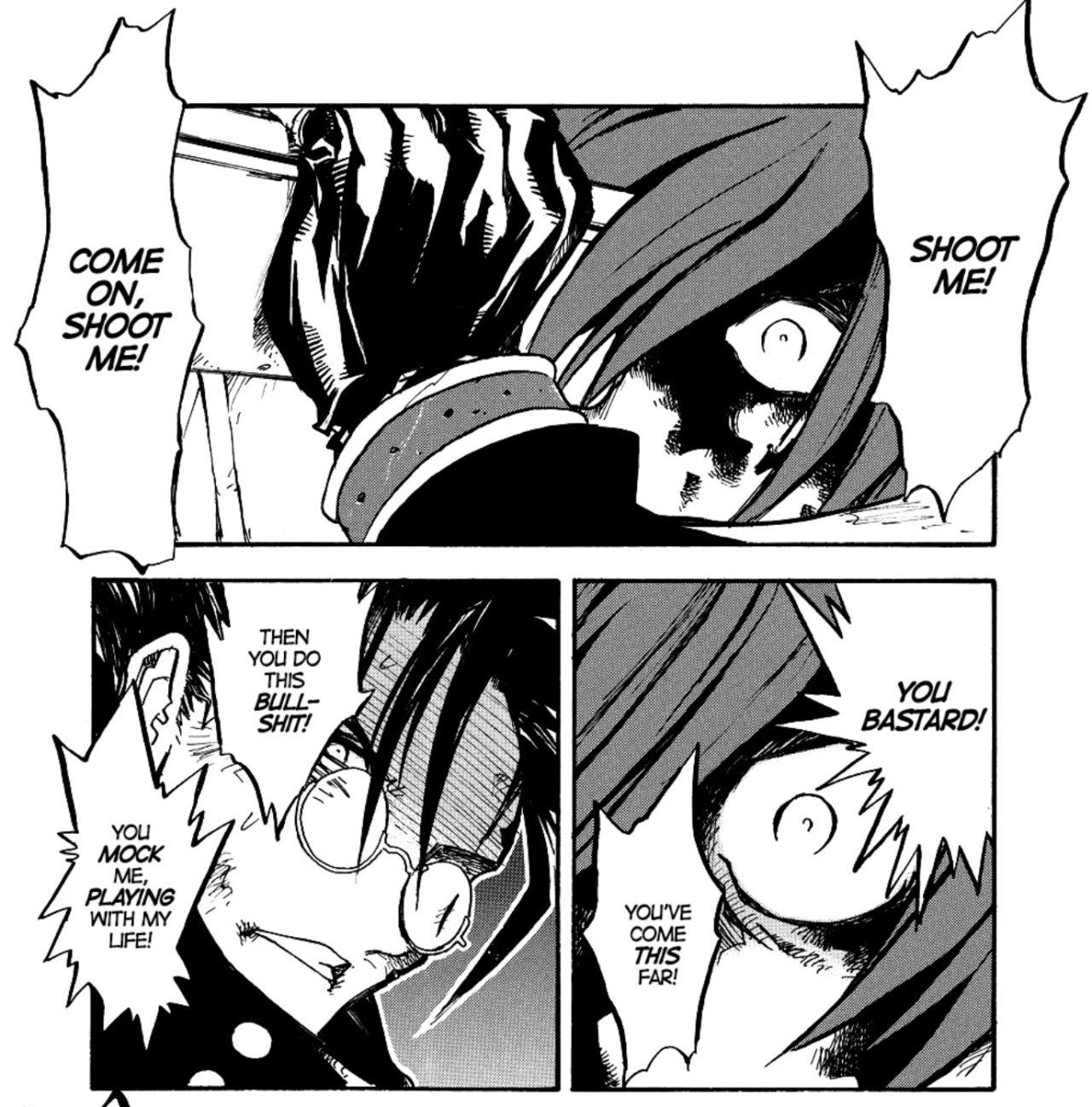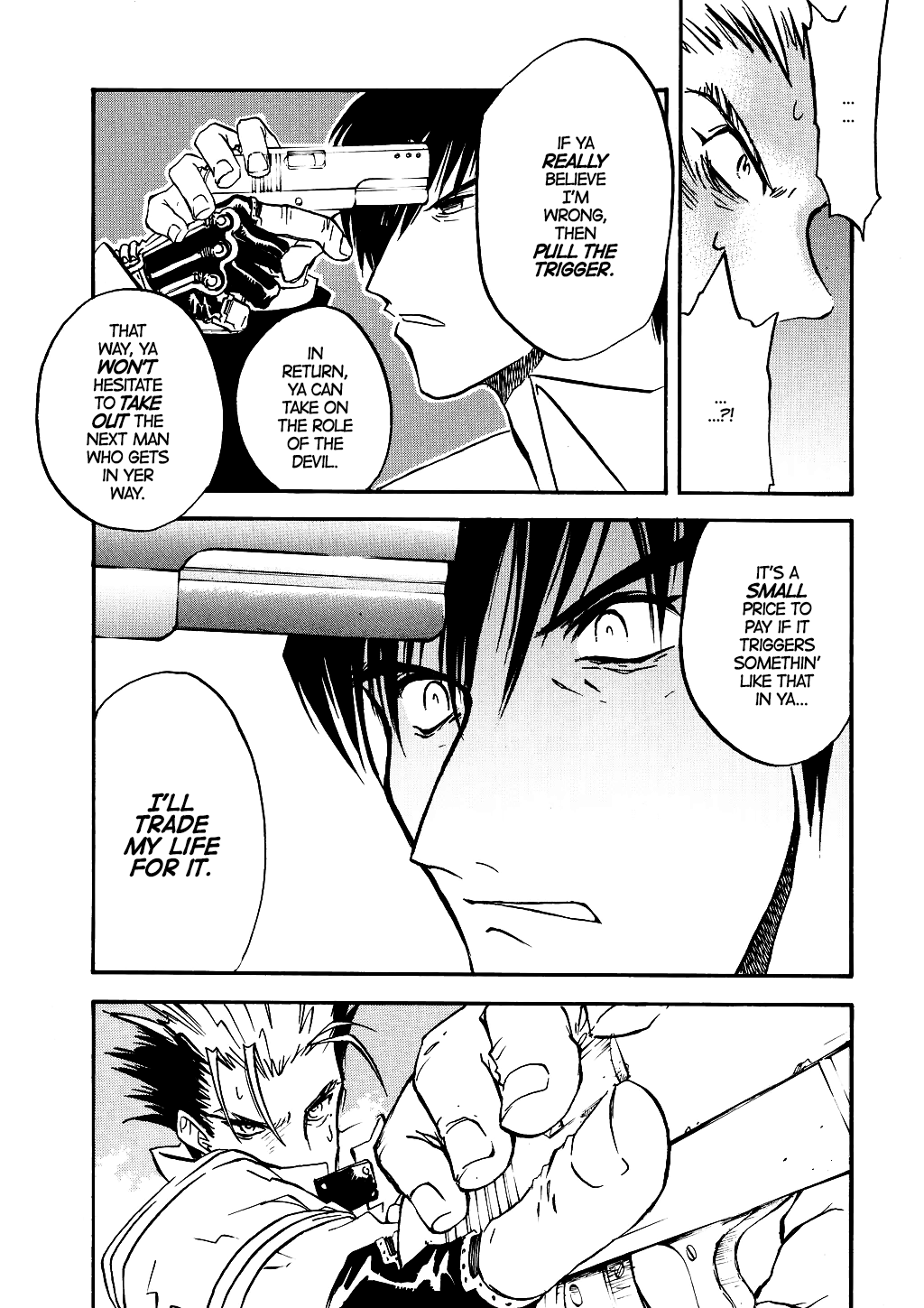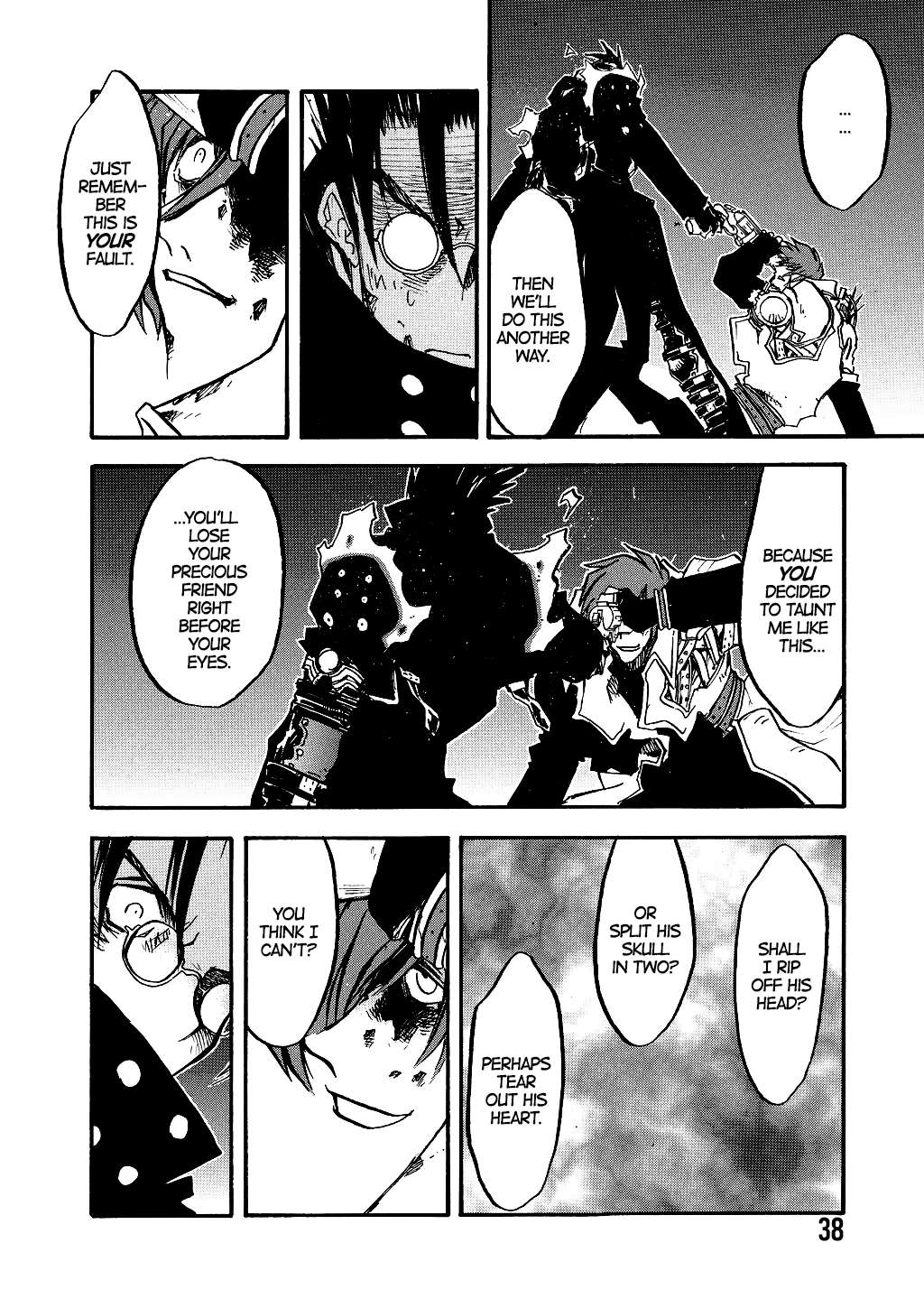Back to the Trigun Bookclub Archive
Trigun Bookclub By Volume
Trigun: Volume 1 | Volume 2
Trigun Maximum: Volume 1 | Volume 2 | Volume 3 | Volume 4 | Volume 5 | Volume 6 | Volume 7 | Volume 8 | Volume 9 | Volume 10 | Volume 11 | Volume 12 | Volume 13 | Volume 14 | General Commentary
Trigun Bookclub By Member: alena-reblobs | aluvian | annaofaza | anxiety-elemental-kay | caffeinefire | deludedfantasy | discount-kirishima | domfock | dravencore | eilwen | fifthmooon | hashtagcaneven | hikennosabo | iwritenarrativesandstuff | lizkreates | makima-s-most-smile | merylstryfestan | mydetheturk | namijira | needle-noggins | nepentheisms | nihil-ghost | ocelaw | pancake-breakfast | rainbow-pop-arts | retrodaft | revenantghost | sunday-12-25 | the-nysh | weirdcat1213
Original Tumblr Post: “Shoot” Scene Mirrors and the Flaws in Vash’s Ideology
“Shoot” Scene Mirrors and the Flaws in Vash’s Ideology
I haven’t been able to stop thinking about this for two weeks now so let’s see if I can put this into words. The main point being: when Vash kills Legato, it’s a mirror of the “shoot” scene with Wolfwood.
Visually, they’re stunningly similar, the only difference is Vash willingly points his gun at Legato while Wolfwood forces it to his forehead.


But you know what really gets me? It’s the conversations surrounding these moments.


The scenes are mirrors in that Wolfwood predicted this would happen, and he was right. Wolfwood challenged him because he wanted to know that Vash would be able to make the hard choice and get his hands dirty, that he wouldn’t hesitate. Because in a situation like this, hesitation can get you or someone else killed. But what does Vash do just as he finally decides to kill Legato? He hesitates, putting Livio in danger. Legato even says that if Vash hadn’t paused, hadn’t taunted him, he wouldn’t have done that.
What gets Vash to finally pull the trigger? It’s not fear for his own life or even Livio’s. It’s the memory of Wolfwood’s sacrifice. Wolfwood said he was willing to lay down his life if he could get Vash to pull the trigger. “I’d trade my life for it,” he says. In a way, he did. It took Wolfwood dying for Vash to finally be able to kill.
Another thing I’d argue is that hesitating can be cruel. Legato doesn’t read Vash’s pause as a moment of moral conflict but as a taunt, because that’s what he would do. If he paused like that, it would be to toy with his opponent and make them suffer. While that certainly isn’t what Vash intends, that’s how it comes off, especially in Legato’s twisted worldview. It reminds me of something Sam Vimes says in Men at Arms. “Something Vimes had learned as a young guard drifted up from memory. If you have to look along the shaft of an arrow from the wrong end, if a man has you entirely at his mercy, then hope like hell that man is an evil man. Because the evil like power, power over people, and they want to see you in fear. They want you to know you’re going to die. So they’ll talk. They’ll gloat.
They’ll watch you squirm. They’ll put off the moment of murder like another man will put off a good cigar.
So hope like hell your captor is an evil man. A good man will kill you with hardly a word.”
Now, to be clear, I’m not saying that Vash is evil for hesitating. He’s fighting against ideals he’s been carrying for 150 years. But that’s not how it reads to the person on the business end of his revolver. Vash basically lives on that moment of hesitation, the second chance, and he paints Wolfwood’s instant reaction as the work of the devil. And as we see that isn’t necessarily true. Not only can hesitating get you killed, it’s just cruel. It can easily be read as toying with someone. And isn’t the first rule of gun safety to not point your weapon if you aren’t willing to shoot?
So not only is the “shoot” scene a fundamental part of Vash and Wolfwood’s relationship, it’s an incredible bit of foreshadowing that also directly challenges Vash’s pacifism and ideals.